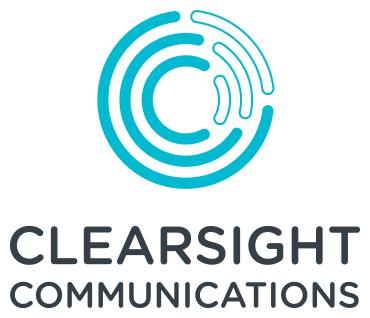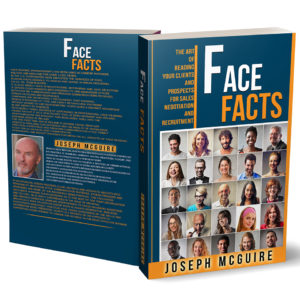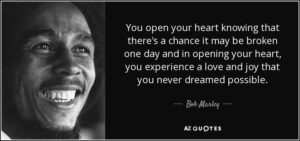
In my work I observe faces, in particular using the ancient Chinese practice of Mien Shiang to read personality traits, behaviour styles and a great deal more. Our life history, or more accurately our responses to life’s challenges are revealed in our facial features if we know how to look. The key features are the eyes. Whether or not they are the ‘windows to the soul’ they certainly reveal most about who we are, have been and may become. It might indeed be most accurate to refer to ourselves as human becomings.
Experience, both personal and in terms of what I’ve observed over many years tells me that life is both a learning and an unlearning process. As we unlearn and unravel the conditioning of parental and societal expectations and conditioning we can learn to open to who and what we are truly capable of being. In opening we begin to realize that deep within us is an infinitely powerful source of vitality and creativity.
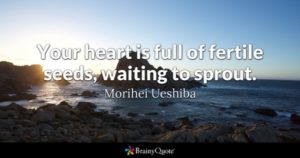
For several centuries in the West we have been largely governed by the Cartesian philosophy where logic and rational thinking have been widely regarded as superior. Emotions have often been seen as inconvenient intrusions. (Note: I have long been fascinated by the at times vicious emotional arguments among eminent rational scientists e.g. Heisenberg and Schrodinger.) We now unfortunately have ever increasing rates of depression, suicide and other conditions related to deep stress. While there is no one cause of any of this it seems reasonable to state that we have gravely neglected to nurture our emotional wellbeing at great cost.
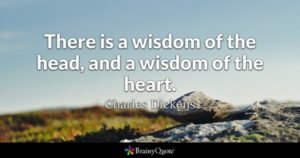
The heart has traditionally been seen in literature, poetry and music as the seat of our emotions. More recently neuroscientists have demonstrated the Heart has a brain of its own and that there is two-way communication between it and the Cranial brain. The Heart Math Institute in particular is showing and measuring the impact of this two-way communication on our physical, mental and emotional wellbeing. When stressed for any sustained period the impact on our physiology is considerable.

Many of us in both our professional and personal lives are experiencing a wide range of at times widely and wildly fluctuating sensations and emotions as we deal with the ever increasing busyness of modern life. In the past year the many of the conversations I’ve had with conservative business professionals have centred on the importance of mental and emotional wellbeing in the workplace. There is growing awareness – and increasing evidence – that emotional intelligence plays a major role in greater employee engagement, satisfaction and performance.

More recently I came to realize I had built a business persona and online profile that neglected a key element of my own nature vital to my own fulfilment. That element is joy! I do what I do because I love to share tools to enable people to connect more deeply, more powerfully, more lastingly and more profitably. For me that combines fun and practicality, and the responses I get from clients fuel my joy. We have seen the devastating social and cultural impact of the uber-macho culture in the workplace – Lehman Brothers, Salomon Brothers, Enron et al – and those impacts have been global. Conversely we have seen the ripples of joy and sustainable growth spread by visionaries such as Muhammad Yunus with microfinance which has had massive positive impact on communities. This is not to critique one commercial approach vis-a-vis another; rather it is to note the positive effects of engaging the Heart and the Head in our thinking and actions.
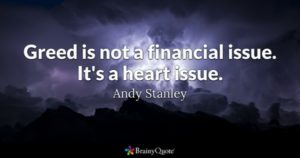
As the Heart awakens we begin to experience our internal world differently, and by extension we behave differently in the world around us. There may be a period of feeling unsettled, with moments of clarity interspersed with tears, confusion and feeling of being distinctly out of balance. Gradually however as we learn to relax we notice clear physical benefits. The quality of our sleep improves; our digestion is easier; headaches and muscle pain decrease; our overall energy begins to increase. We become less hurried and harried, more conscious of the myriad wonders of daily life, and joy becomes a much more regular companion. In short, as we open ourselves we begin to experience the world around us through the Heart. We begin to engage with life with a lighter and more joyful commitment. Judgements become fewer and less relevant, and previously un-thought of opportunities for deeper connection and collaboration present with greater frequency.
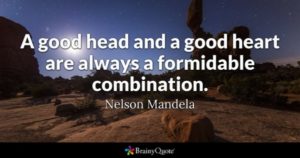
Will we still experience sadness, frustration and maybe even despair? Probably yes on occasion. The big difference is that in experiencing life through the Heart and remembering to return there we no longer attach to these debilitating states. We can let them be and let them go. The Heart calls, and as we answer life becomes more flowing and wondrous.
If you’d like to learn more my contact details are below.
Feel free to share this article.
Alongside my work in profiling, interviews and negotiations I work with groups and individuals who wish to bring joy to the forefront of their daily lives, both professional and personal. I’m available for presentations and consultations both in person and online. I’m also the author of ‘Face Facts: The Art of Reading Your Clients and Prospects for Sales, Negotiation and Recruitment’, available through my website. Contact me on: +353-(0)87-246 1853 or at joseph@clearsightcommunications.com
